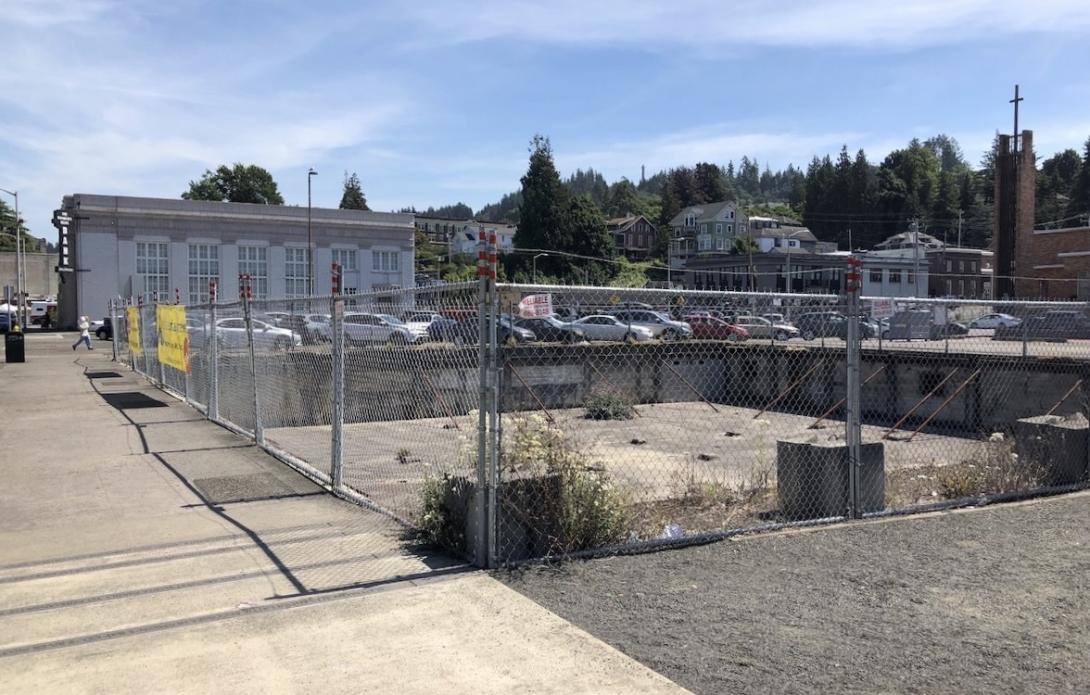
A bill nearing a Senate floor vote would give opponents of residential treatment facilities less leverage to stymie them, but the odds it becomes a law remains unclear.
For years, lawmakers, advocates and state-funded consultants have said the state should build more of these facilities to provide Oregonians with needed care. Oregon’s housing statutes, however, violate federal law by creating barriers to siting them.
House Bill 4023 would create what amounts to a fast track for behavioral health providers and others seeking to set up facilities where six or more people experiencing mental health or substance use disorders receive care.
During a House floor speech last week, state Rep. Mark Gamba, D- Milwaukie, said that the bill would help overcome objections raised by neighborhood groups to residential facilities. A former mayor of Milwaukie, he described how his city leaders had overcome such opposition.
But he added that other cities may not have the same resolve when faced with “fearmongering and pearl clutching (that) defies all reason.”
Last year, advocates cited the Astoria City Council's decision in 2022 to vote down Heritage Square, a development that would have included 30 affordable housing units with supportive services and staff for people with mental health or substance use challenges.
The bill removes the ability of local governments to require developers of residential treatment facilities to first obtain a zone change or a conditional use permit. Those processes require public notice and allow appeals, making it easier for opponents to slow or kill a project.
The bill passed the House floor unanimously. But the Senate Rules Committee on Wednesday made a significant change to the bill that now means that if it passes the Senate it must then go back to the House for another vote. The legislative session must end by Sunday, leaving little time for the bill to pass.
Under the House version, the bill’s fast track only applied to facilities that would be set up on land that’s publicly owned or is zoned for commercial or industrial use.
Gamba called it a “glaring omission” that the bill didn’t apply to residentially zoned land that he said is more suitable for the facilities and would create better outcomes.
At a House Rules Committee meeting last month, House Majority Leader Julie Fahey said the bill didn’t do “everything that advocates want.” But she added, “I think it could allow for some communities to increase the number of treatment beds in their jurisdictions.”
On Wednesday March 6, the Senate Rules committee amended the bill to include residential land. The move was made after the League of Oregon Cities submitted testimony saying that treating different types of land differently made the bill subject to legal challenge, opening the door to “costly litigation” against cities.
Need for facilities
Earlier this year, a state-hired consultant released a report that found that Oregon needs an estimated 3,000 behavioral health beds to meet demand. The largest shortfall identified by the report was residential drug and alcohol treatment beds.
“We need more of these facilities, but occasionally, people have misconceptions about who’s gonna live there,” State Rep. Rob Nosse, D-Portland, said during a hearing on the bill before the House Rules Committee last month. “The safety of those that are going to be living next to them, will that be compromised?”
Nosse sponsored a similar bill last session that fizzled after Republicans complained it would erode local control and place residential facilities near schools or other sensitive locations.
The new, slimmed-version of the bill has drawn widespread support from a range of law enforcement and local government representatives, as well as behavioral health providers, including Oregon Council for Behavioral Health and the Association of Oregon Community Mental Health Programs.
Alex Cuyler, a lobbyist for Lane County, wrote that setting up more residential treatment facilities was essential to implementing House Bill 4002. The bill recriminalizes personal possession of drugs and also seeks to expand substance use treatment access.
Other groups backing the HB 4023 cited the limited number of beds at the Oregon State Hospital. The state psychiatric facility is under a federal court order to accept patients accused of crimes and unable to participate in their defense because of mental illness.
“This legislature has made historic investments in behavioral health housing because you understand the critical need to create community placements,” wrote Anna Braun, a lobbyist for Greater Oregon Behavioral Health Inc., which provides social services in rural counties. “Providing this type of housing is the only way to solve the bottleneck at the Oregon State Hospital.
Kevin Campbell — representing prosecutors, police chiefs and sheriffs — wrote that the crisis at the state hospital is an urban and rural problem. He wrote that the bill “will begin to expedite the desperately needed expansion” of residential facilities. Additionally, he pointed to state laws regulating the safety of these facilities.
The amended bill is slated for a third reading on the Senate floor Friday, March 8. With the session slated to end by Sunday, March 10, that provides limited time to get a House vote of concurrence on the current version.
